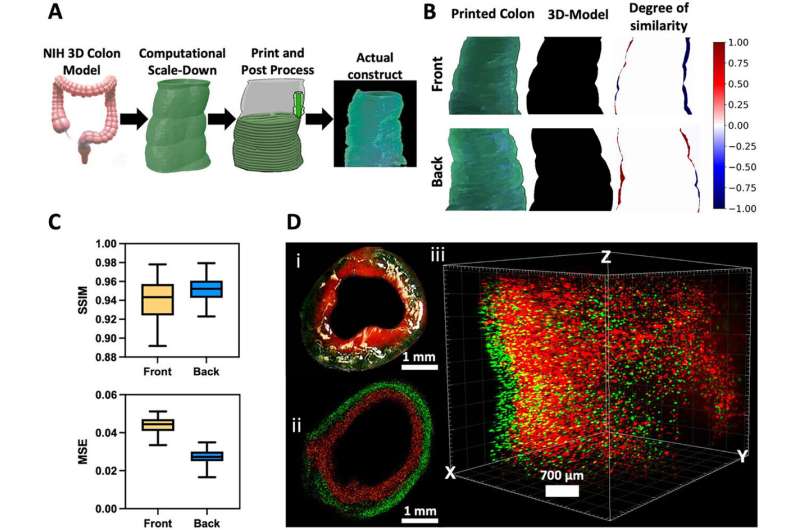In a paper published recently in the journal Advanced Science, researchers in UC Irvine’s Samueli School of Engineering outline their creation of an approximately 5-by-10-millimeter replica that incorporates essential structural features of a colon, including liminal curvature, multilayered cellular organization and the spontaneous formation of cryptlike indentations.
“The three-dimensional shapes, curves and crypts in our 3D-IVM-HC model are central to maintaining more realistic cell behavior even at a scaled-down size,” said senior author Rahim Esfandyar-pour, UC Irvine assistant professor of electrical engineering and computer science.

